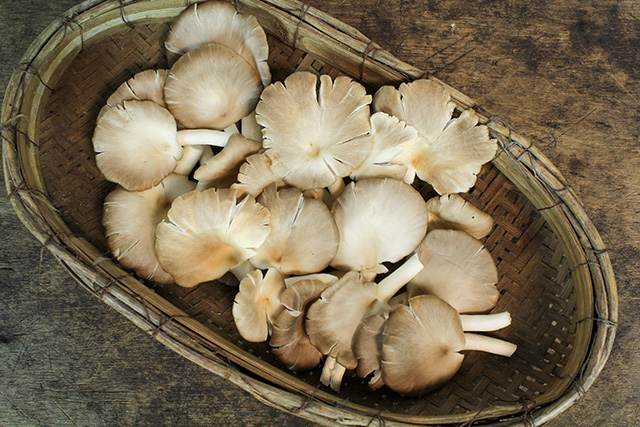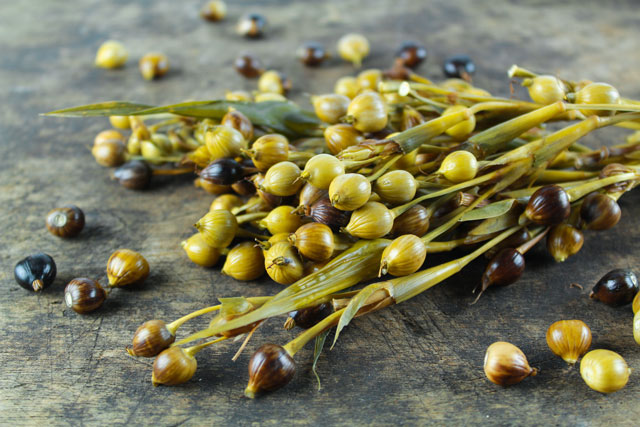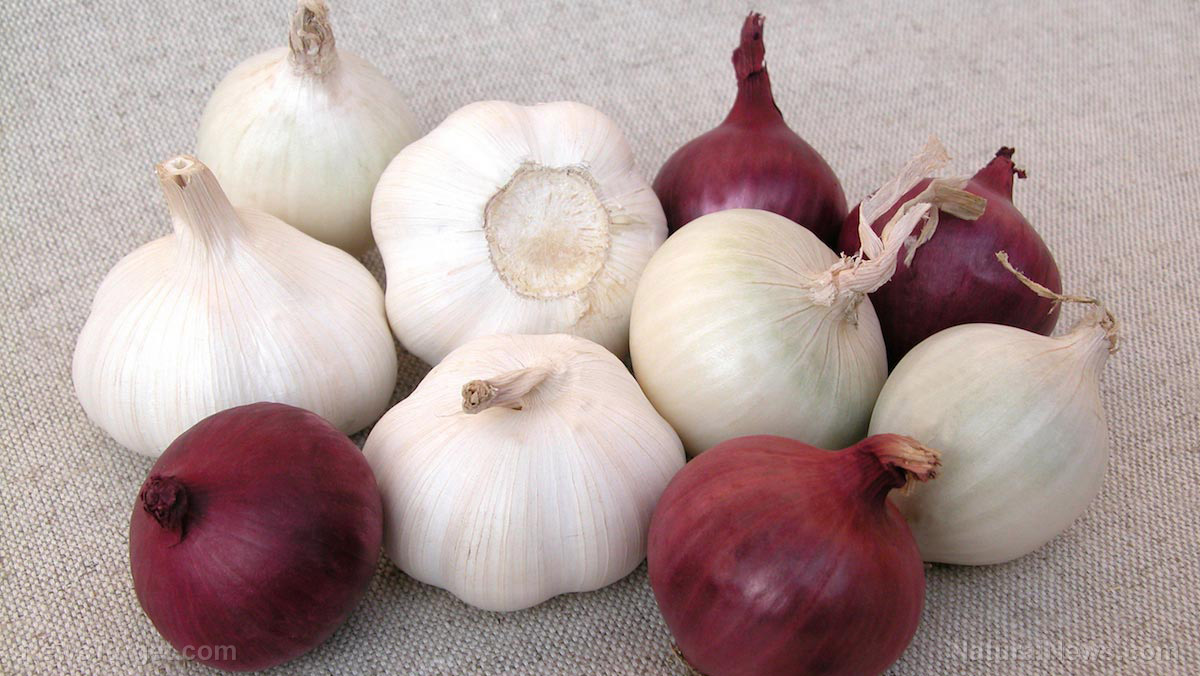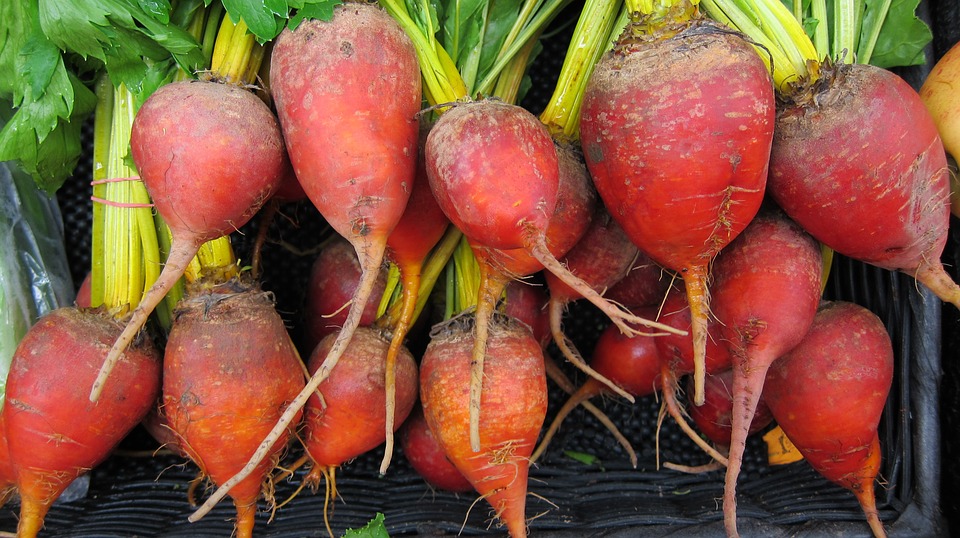Oyster mushrooms: Nutrient-packed superfood with ancient roots
04/20/2025 / By Ava Grace

- Oyster mushrooms (Pleurotus ostreatus) are prized for their savory flavor and health benefits, including anti-inflammatory, immune-boosting and potential anticancer properties.
- Cultivated since ancient times in Asia, modern farming began in WWI Germany to address food shortages. Today, they’re grown globally using sustainable methods like agricultural waste.
- Oyster mushrooms are rich in protein, B vitamins, minerals and bioactive compounds (e.g., beta-glucans, lovastatin, ergothioneine) that support heart health
- Studies suggest they may lower cholesterol, regulate blood sugar, enhance immune function and exhibit anti-tumor effects (though more human trials are needed).
- Enjoyed in traditional medicine (e.g., Chinese remedies) and modern cuisine (stir-fries, soups, vegan “scallops”), bridging ancient wisdom with contemporary wellness trends.
Oyster mushrooms (Pleurotus ostreatus) have long been celebrated as both a culinary delicacy and a medicinal powerhouse. With their delicate, fan-shaped caps and savory, slightly briny flavor, these fungi have been a staple in global cuisines for centuries.
But beyond their taste, oyster mushrooms are now recognized as a superfood, packed with phytonutrients that may help combat inflammation, boost immunity and even fight cancer. First cultivated in Germany during World War I as a sustainable food source, oyster mushrooms today are grown worldwide, from Asia to North America. Their rise from humble forest fungi to a revered superfood is a story of science, tradition and modern wellness trends.
A brief history of oyster mushrooms
Oyster mushrooms have been foraged and consumed since ancient times, particularly in China and Japan, where they were valued for both their taste and medicinal properties. Historical records suggest they were cultivated as early as the Tang Dynasty (618 to 907 AD). However, modern cultivation began in earnest during World War I, when German scientists developed techniques to grow them on straw and wood substrates as a solution to food shortages. (Related: Sun-exposed oyster mushrooms boost TB patients’ vitamin D levels, immune response.)
Today, oyster mushrooms thrive in temperate and subtropical regions – with China, the United States and India leading commercial production. Their adaptability to different growing conditions, including recycled agricultural waste, makes them an environmentally sustainable food source.
Why oyster mushrooms are considered a superfood
The term “superfood” is often overused, but oyster mushrooms earn the title through their dense nutritional profile. They are rich in protein, fiber, B vitamins and essential minerals like potassium, iron and zinc. More impressively, they contain bioactive compounds such as beta-glucans, lovastatin (a natural cholesterol-lowering agent) and ergothioneine (a potent antioxidant).
Their emergence as a superfood in the 21st century aligns with growing interest in functional foods – those that offer health benefits beyond basic nutrition. Research suggests these phytonutrients contribute to oyster mushrooms’ ability to:
- Lower cholesterol (due to lovastatin)
- Boost immune function (via beta-glucans)
- Reduce inflammation (thanks to antioxidants)
- Possibly inhibit cancer growth (studies show anti-tumor effects in lab settings)
Health benefits of oyster mushrooms
Scientific studies and traditional medicine point to several health benefits of oyster mushrooms.
- Cardiovascular health: The presence of lovastatin, a compound also used in prescription cholesterol drugs, helps reduce LDL (“bad”) cholesterol.
- Immune support: Beta-glucans stimulate white blood cell activity, enhancing the body’s defense against infections.
- Antioxidant protection: Ergothioneine protects cells from oxidative stress, potentially slowing aging and reducing chronic disease risk.
- Blood sugar regulation: Preliminary research indicates oyster mushrooms may improve insulin sensitivity, benefiting those with diabetes.
- Anti-cancer potential: Lab studies show oyster mushroom extracts may suppress tumor growth, though human trials are needed.
In traditional Chinese medicine, oyster mushrooms have been used to strengthen the lungs, improve circulation and relieve fatigue. Modern wellness practitioners recommend them in soups, teas and extracts for immune support. Some people consume them dried, powdered or as supplements to harness their medicinal properties.
Recipes featuring oyster mushrooms
Here are some recipes using oyster mushrooms as an ingredient that you can try in your kitchen.
- Crispy oyster mushroom tacos: Sautéed with spices, they mimic the texture of pulled pork.
- Miso oyster mushroom soup: A Japanese-inspired broth with kombu and tofu.
- Garlic butter oyster mushroom pasta: Sautéed in butter and herbs for a rich, earthy flavor.
- Oyster mushroom stir-fry: Quick-cooked with soy sauce, ginger and vegetables.
- Vegan oyster mushroom “scallops”: Sliced thick and seared for a seafood-like dish.
Oyster mushrooms bridge the gap between ancient tradition and modern science, offering both culinary delight and proven health benefits. As researchers continue to uncover their medicinal potential, these fungi stand out as a sustainable, nutrient-dense superfood. Whether enjoyed in a stir-fry, soup or supplement form, oyster mushrooms are a testament to nature’s ability to nourish and heal.
Of course, this isn’t a substitute for medical advice, and it’s always a good idea to chat with a naturopathic physician who can tailor recommendations to your unique health needs.
For more fascinating insights into superfoods and their natural wonders, visit NaturalNews.com. It’s a treasure trove of articles that will deepen your understanding of the healing power of food.
If you’re into cutting-edge technology with a health twist, try Brighteon.ai. Created by Mike Adams, the Health Ranger, this AI model is a free download that you can run on your own device. It’s all about sharing knowledge freely and bypassing the filters of censorship.
And if you’re looking for a place to openly discuss everything from nutrition to natural remedies without any holds barred, Brighteon.com is your go-to spot. Don’t forget to check out their free speech social media platforms, Brighteon.IO and Brighteon.social, where the conversation is always lively and uncensored.
Watch this video about growing oyster mushrooms in used coffee grounds.
This video is from the Frozen in Time channel on Brighteon.com.
More related stories:
Food supply 101: How to grow edible mushrooms in your home garden.
Study finds that consuming more edible mushrooms lowers cancer risk
6 Mushrooms you can eat to prevent cognitive impairment and reduce your dementia risk.
Sources include:
Submit a correction >>
Tagged Under:
alternative medicine, anticancer, antioxidants, Cures, food cures, food is medicine, functional food, healing, healing food, Heart, heart health, immune system, natural cures, natural health, natural medicine, oyster mushrooms, phytochemicals, Pleurotus ostreatus, remedies, reverse heart disease
This article may contain statements that reflect the opinion of the author
RECENT NEWS & ARTICLES
ReverseHeartDisease.News is a fact-based public education website published by Reverse Heart Disease News Features, LLC.
All content copyright © 2018 by Reverse Heart Disease News Features, LLC.
Contact Us with Tips or Corrections
All trademarks, registered trademarks and servicemarks mentioned on this site are the property of their respective owners.




















